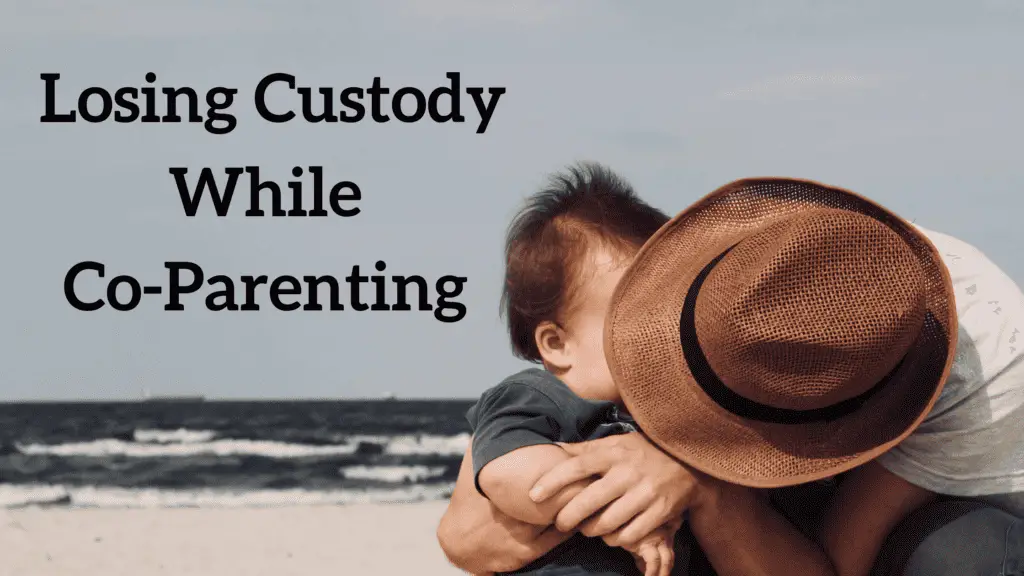While co-parenting is highly encouraged and valued for the benefit of the children involved, there are instances where failing to co-parent effectively can have legal implications. In some cases, a parent may face the possibility of losing custody or having their custody rights significantly limited due to their inability or unwillingness to co-parent in a cooperative and responsible manner. So, can you lose custody for not co-parenting?
The legal system aims to prioritize the best interests of the child in custody decisions. When parents cannot effectively co-parent, it can negatively impact the child’s emotional and psychological well-being. In such cases, a court may intervene and make decisions based on what is deemed to be in the child’s best interests.
What Is Co-Parenting?
Co-parenting is a parenting arrangement where both parents work together collaboratively to raise their children, even though they are no longer in a romantic relationship or living together. It involves shared decision-making, open communication, and cooperation between both parents to provide the best possible care and support for their children.
The benefits of co-parenting for children are numerous. They include:
- Stability and Consistency: Co-parenting provides a stable and consistent environment for children, ensuring that they have a predictable routine, clear expectations, and a sense of security.
- Emotional Well-being: Children benefit from having strong and healthy relationships with both parents. Co-parenting allows children to maintain a close bond with each parent, providing emotional support and a sense of love and belonging.
- Reduced Conflict: When parents cooperate and communicate effectively, it reduces conflict and tension in the child’s life. This minimizes the negative impact of parental disputes on the child’s well-being.
- Healthy Role Models: Co-parenting allows children to observe positive role modeling as they witness their parents working together, resolving conflicts peacefully, and prioritizing their well-being. This sets a healthy example for their own future relationships.
- Enhanced Development: Co-parenting ensures that children have access to both parents’ knowledge, skills, and perspectives. Each parent brings unique qualities that contribute to the child’s intellectual, emotional, and social development.
What Happens When Co-Parenting Fails
When co-parenting fails, it can have significant negative effects on children’s well-being. Some of the common consequences include:
Emotional Distress
Children may experience heightened emotional distress when they witness ongoing conflict between their parents. The constant tension and hostility can lead to anxiety, depression, and low self-esteem, affecting their overall emotional stability.
Inconsistent Parenting
Without effective co-parenting, there is a higher likelihood of inconsistent parenting practices between households. Inconsistent rules, routines, and discipline can confuse children and make it challenging for them to develop a sense of structure and stability.
Loyalty Conflicts
When co-parenting fails, children may feel caught in the middle of their parents’ conflicts. They may feel pressured to take sides or feel guilty for maintaining a relationship with both parents. These loyalty conflicts can place a heavy emotional burden on children and impact their relationships with their parents.
Negative Impact on Development
Lack of effective co-parenting can hinder a child’s healthy development. Children may struggle academically, socially, or emotionally due to the ongoing stress and instability caused by conflicts between parents.

Court Intervention When Co-Parenting Is Not Working
In cases where co-parenting is not working, the court may intervene in custody cases to ensure the best interests of the child. Courts typically prioritize the child’s well-being and consider several factors when making custody decisions, such as:
Evidence of Harm
If there is evidence of abuse, neglect, or any behavior that poses a risk to the child’s safety or well-being, the court may intervene to protect the child and may limit or modify custody arrangements.
Parental Fitness
The court assesses the ability and willingness of each parent to provide a nurturing and stable environment for the child. Parents who demonstrate a lack of cooperation, refusal to communicate, or disregard for the child’s needs may be deemed unfit in the eyes of the court.
Read About: Can a Child Refuse to See a Parent
Child’s Best Interests
The court takes into account the child’s age, emotional and physical needs, relationships with each parent, and any special considerations. The goal is to determine custody arrangements that promote the child’s overall well-being and development.
Mediation and Counseling
In some cases, the court may order mediation or counseling to help parents improve their co-parenting relationship. This intervention aims to facilitate communication, conflict resolution, and the development of a parenting plan that serves the child’s best interests.
Can You Lose Custody For Not Co-Parenting
Can you lose custody for not co-parenting? The answer is simple and straightforward. Yes, you can lose custody for not co-parenting. In certain circumstances, a parent can potentially lose custody or have their custody rights significantly limited for not effectively co-parenting. However, it is important to note that the loss of custody typically occurs when there is evidence of significant harm or neglect to the child resulting from the parent’s behavior or actions, rather than simply due to difficulties in the co-parenting relationship.
Courts prioritize the best interests of the child when making custody decisions. If a parent consistently fails to fulfill their co-parenting responsibilities, such as regularly missing visitation, refusing to communicate or cooperate in decision-making, or engaging in behavior that poses a risk to the child’s safety or well-being, the court may intervene. The specific legal consequences and potential loss of custody will depend on the severity and impact of the non-compliant parent’s actions on the child.

Legal Consequences for Ineffective Co-Parenting
In certain circumstances, not effectively co-parenting can have legal consequences, potentially resulting in the loss of custody or significant limitations on custody rights. Losing custody for not co-parenting is typically a result of significant harm or neglect to the child rather than mere difficulties in the co-parenting relationship.
1. Modification of Custody Orders
If one parent consistently fails to fulfill their co-parenting responsibilities, such as regularly missing visitation or failing to communicate and cooperate in decision-making, the other parent may file a request to modify the existing custody order. The court will consider the evidence presented and may make adjustments to the custody arrangement in the best interests of the child.
2. Supervised Visitation
In cases where one parent demonstrates behaviors that may endanger the child’s safety or well-being, the court may order supervised visitation. This means that the non-compliant parent can only spend time with the child in the presence of a neutral third party, ensuring the child’s protection.
3. Loss of Custodial Rights
If a parent consistently fails to meet their co-parenting obligations and the court determines that it is not in the child’s best interests to maintain custody with that parent, the court may grant sole custody to the other parent. This means the non-compliant parent would lose the legal right to make decisions about the child’s upbringing and have primary physical custody.
4. Limited Parenting Time
In situations where the court determines that the non-compliant parent’s behavior poses a risk to the child’s well-being, the court may restrict the non-compliant parent’s parenting time. This could result in reduced visitation rights or supervised visitation to ensure the child’s safety and protection.
5. Parenting Classes or Counseling
In some cases, the court may order non-compliant parents to attend parenting classes or counseling as a condition to maintain or regain custody rights. These programs aim to educate parents on effective co-parenting strategies, conflict resolution, and promoting the best interests of the child.

How to Co-Parent Effectively
Co-parenting effectively requires a conscious effort from both parents to prioritize the well-being of their children. Here are some tips and strategies for successful co-parenting:
Effective Communication
Establish open and respectful communication channels with the other parent. Keep conversations focused on the child’s needs and important matters related to their upbringing. Use various means of communication, such as in-person discussions, phone calls, emails, or text messages, to stay informed and involved.
Create a Co-Parenting Plan
Develop a co-parenting plan or schedule that outlines specific details regarding custody, visitation, holidays, and special occasions. Having a clear plan helps reduce conflicts and provides consistency and stability for the children. Be flexible and willing to make adjustments when necessary.
Be Respectful and Flexible
Respect the other parent’s parenting style and decisions, as long as they are not harmful to the child. Be open to compromise and flexibility when unforeseen circumstances or changes arise. Remember that the focus should be on what is best for the child.
Consistency in Rules and Discipline
Establish consistent rules, routines, and discipline methods between households to provide stability and minimize confusion for the child. Discuss and agree upon important guidelines and consequences to maintain a cohesive approach to parenting.
Keep Children out of Conflicts
Shield children from parental conflicts and avoid involving them in adult disagreements. Maintain a positive and neutral tone when discussing the other parent in the presence of the children. Encourage the child’s relationship with the other parent and support their bond.
Read About: Why Do I Cry When My Parents Fight
Attend Co-Parenting Programs or Counseling
Consider attending co-parenting programs or seeking professional counseling to improve communication and cooperation skills. These resources can provide valuable guidance and strategies for navigating co-parenting challenges.
Maintain Consistent Communication with Teachers and Caregivers
Stay in regular communication with teachers, caregivers, and other important individuals involved in your child’s life. Share important updates, attend parent-teacher conferences together, and collaborate on decisions regarding the child’s education, healthcare, and extracurricular activities.
Prioritize Self-Care
Take care of your own physical and emotional well-being. Being emotionally balanced and healthy allows you to be a more present and effective co-parent. Seek support from friends, family, or professionals when needed.
Conclusion
The importance of co-parenting for children’s well-being cannot be overstated, and the legal consequences of not co-parenting effectively underscore its significance. By placing their children’s needs at the forefront and actively collaborating, parents can establish a constructive co-parenting relationship that not only benefits their children but also promotes a healthier and more harmonious family dynamic. Through effective communication, respect, and a child-centric approach, parents can navigate the challenges of co-parenting and ensure a nurturing environment where their children can thrive.







